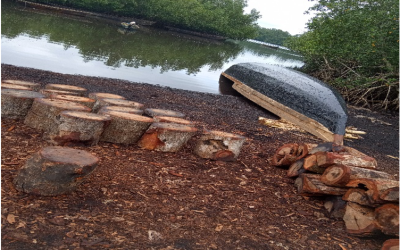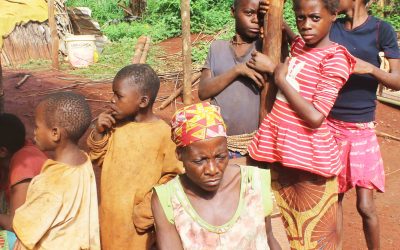
The adjacent communities living in these areas are agrarians with their livelihood largely dependent on small-scale farming and animal husbandry. Crops and animals grown include Cocoyam. Cassava, plantain, oil palm, cocoa white pepper, pigs, fowls, and goats. Incomes from the yields of these agricultural activities cannot sustain their livelihoods deviating attention to poaching, extended agriculture (slash and burn).
To achieve the conservation of this high-value biodiversity, households and communities adjacent to this area must be financially and economically empowered .Agricultural value chain development using the Community conservation social enterprise development (CoCoSED Model( Mr. Louis Nkembi, unpublished) for selected crops and animals (oil palm, cocoa, poultry and piggery).This model has objectives:1).Financial and economic empowerment 2).Community development 3)Support to conservation of high-value biodiversity and contribution towards the development of endowment fund.
Application of this model will lead to increase in households’ production and incomes, create more jobs, and consequently lead to less pressure on high value biodiversity and poaching, reduced to minima level.


A total of $100,000 will be required to carry out this project.
With $150 will help create an extra job for one household involve in cocoa value chain (for 80 households will required $12,000).
With $1000 will help raise the income level of 1household involve in oil palm value chain by $100(for 15 household will required $15, 0000)
With $10,000 will provide seed fund for one social cooperative enterprise (for 7 social cooperative enterprise will require $ 70,000). Finally, $ 3000 will be used for the training of communities’ members.
More information can be obtained through the following training@erudef.org, www.erudefinstitute.org and www.erudef.org
The two-year project will be carried out by a team of experts from ERuDeF with long years of experience in community management, commodity value chain development, market information system, protected area creation, management and conservation. With the use of community conservation Social Enterprise model developed and tested by Mr. Louis Nkembi,the president/CEO of ERuDeF, there is no doubt that the project goal will be achieved.


